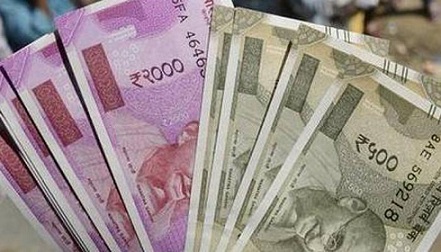By Our Correspondent
NEW DELHI/BHUBANESWAR: The interventions by Government for MSMEs, have been gaining rapid traction. Under the Emergency Credit Line backed by a Government guarantee, Banks from Public & Private Sectors have so far already sanctioned loansworth over Rs. 79,000 crore as of June 20, 2020, of whichmore than Rs 35,000 crore has already been disbursed.
The top lenders under the Scheme are SBI, HDFC Bank, Bank of Baroda, PNB & Canara Bank.This has helped 19 lakh MSMEs & other businesses restart their businesses post the lockdown.As part of the Aatmanirbhar package Government had announced its plans for Rs. 3 lakh Crore as additional credit to MSMEs and small businesses.Such enterprises were to be eligible to receive upto 20% of their existing borrowing as additional loans at interest rates which were capped.
Separately,under RBI’s Special Liquidity Facility announced in March-April, 2020, SIDBI has sanctioned over Rs. 10,220 crore to NBFCs, Micro Finance Institutions & Banks for lending to MSME& small borrowers. National Housing Bank (NHB) has sanctioned its entire facility of Rs. 10,000 crore to Housing Finance Companies.
This refinance by SIDBI & NHB is in addition to ongoing schemes through which over Rs. 30,000 crore has been sanctioned. NBFCs & MFIs are being further helped under the Extended Partial Guarantee Scheme where approvals have crossed Rs. 5500 crore. Transactions for another Rs. 5000 crore are under process of approval while certain other deals are currently under negotiation.
Ajit Kumar, Chairman, Central Board of Indirect Taxes and Customs (CBIC) unveiled a Secure QR coded Shipping Bill that would be electronically sent to exporters after the Customs allows export. This eliminates in one stroke the requirement of the exporters having to approach the Customs officers for proof of export. This also makes the end to end Customs export process fully electronic, from the filing of the Shipping Bill to the final order to allow export.
Today’s initiative in yet another step taken by CBIC for fulfilling its commitment to a Faceless, Paperless, and Contactless Customs under the umbrella of its “Turant Customs” programme. These reforms are based on enhanced use of digital technology to reduce the time and costs for the importers, exporters and other stakeholders, thereby improving India’s ranking in the World Bank’s Trading Across Borders parameter of its Doing Business Report.
The launch of paperless documentation on exports is a sequel to a similar initiative that was begun for imports w.e.f. 15th April 2020. The electronic transmission of the Shipping Bill would do away with the present requirement to take paper printout of these documents thereby promoting Green Customs. Equally importantly exporters would not have to visit the Customs Houses for this purpose and can better utilize their time in promoting their business.
Shri Ajit Kumar informed that the endeavour is to leverage technology to make the Customs clearance process more transparent and faster. Turant Customs, which has as its main component Faceless Assessment, would be implemented in phases across the entire country by 1st January 2021.



























